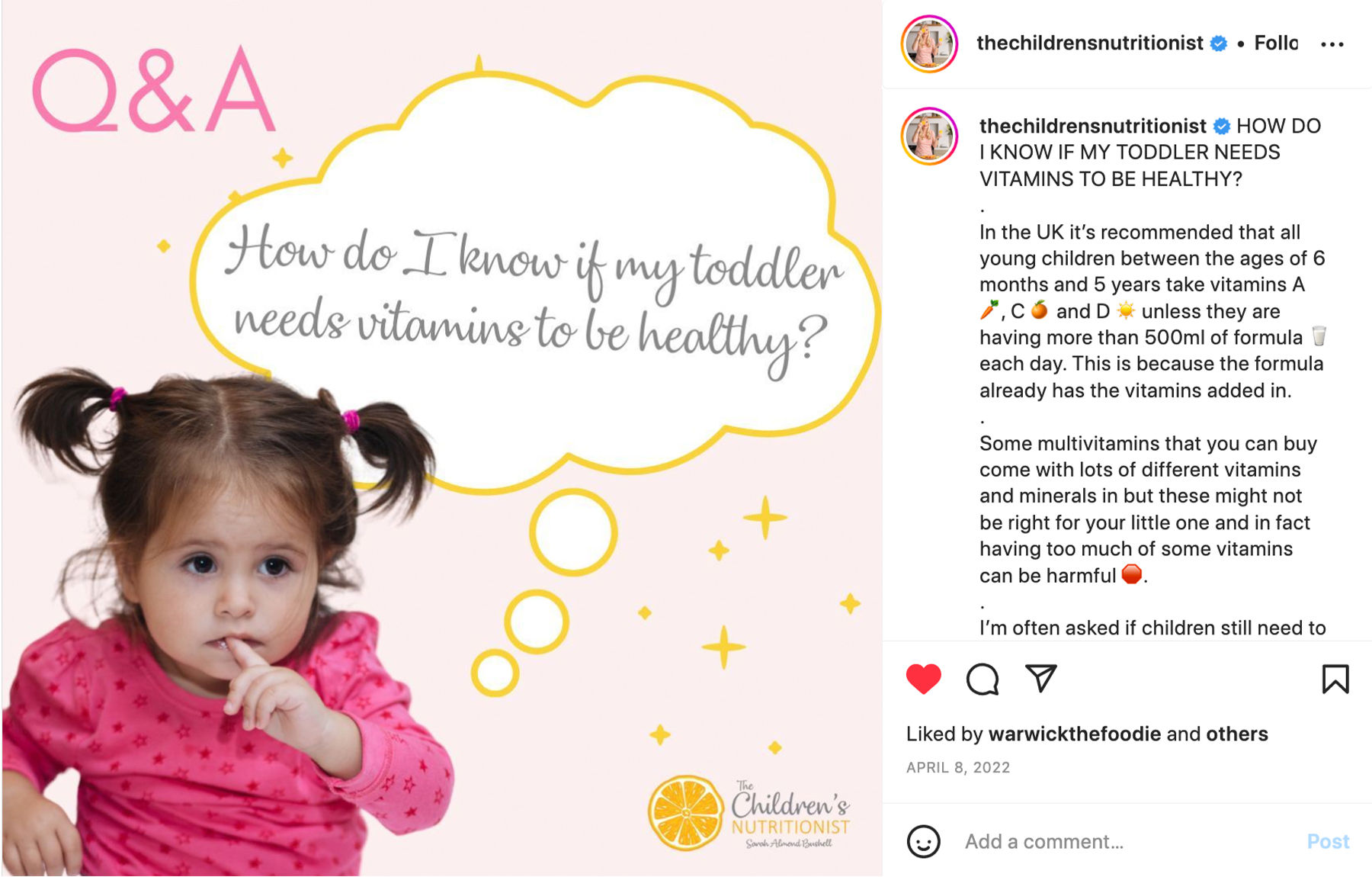Use arrow keys to navigate through the menu items. Use Tab key to navigate through the menu banners.
Are You Giving Your Baby Vitamin D?

Are You Giving Your Baby Vitamin D?
This super-nutrient is crucial for your little one's bone development
From sleep to feeding, when it comes to looking after babies, keeping up with the endless list of do’s and don’ts can feel mind-boggling. Ensuring your little one gets the right vitamins and minerals needn’t be complicated, though.
The UK Department of Health says that if your baby is breastfed, you should give them a daily supplement of vitamin D drops from birth. They also recommend that all children aged 6 months to 5 years take a daily supplement containing vitamins A, C and D.
Babies who drink more than 500ml of infant formula a day shouldn’t take vitamin supplements, since this already has vitamins and nutrients added.

What is vitamin D and what are the benefits?
‘Vitamin D is a hormone that’s naturally produced when sunlight hits the skin. Babies need it for bone and teeth strength and growth, and it also plays a role in developing a healthy immune system,’ says registered dietitian Sarah Almond-Bushell (@thechildrensnutritionist).
Around one in six adults and almost 20% of children in the UK have vitamin D levels lower than government recommendations, which can be linked to rickets (a condition affecting bone development in children), bone pain and muscle weakness. People with dark skin – for example those with an African, African-Caribbean or south Asian background – are particularly susceptible to having low levels.
While shocking, these deficiencies are perhaps unsurprising when you consider we're not getting a whole lot of sunlight here in the UK, and it's difficult to get our vitamin D fix from diet alone.
‘Only a few foods contain vitamin D including oily fish, egg yolks or fortified foods such as certain margarines, brands of milk and breakfast cereals,’ Sarah explains.
That’s why a daily supplement is considered the best way for babies and children up to 4 years, especially exclusively breastfed babies, to get a sufficient intake. The only exception? Infants drinking more than 500ml of formula milk per day.
What are the best vitamin D supplements to buy for my baby?
When choosing a supplement for your new baby, there are two options – you can give vitamin D alone or as part of a multivitamin. Make sure that the supplement you choose is suitable for your baby’s age.
The Department of Health’s daily recommended vitamin D intake is:
-
From birth to 12 months old: 8.5mcg to 10mcg (unless drinking 500ml+ of infant formula daily)
-
From 1 to 4 years old: 10mcg
-
Adults: 10mcg between October and March (when sunlight levels are lowest)
-
Pregnant or breastfeeding women: 10mcg throughout pregnancy and while breastfeeding
ASDA's range of children's vitamins offers something for every age, including drops suitable from birth, multivitamin liquids, and fun multivitamin gummies that older kids will love.
What's the best way to give babies vitamin D?
Getting your baby to take vitamin D drops may seem daunting. Becky Evans, mum to Louis, 2, and Flo, 7 months, has a handy hack.
‘When Flo was tiny I popped the vitamin D drops onto my clean knuckle and let her suck them off. You can also put the drops onto your nipple, onto a sterilised spoon, or directly into your baby’s mouth using the dropper.’
Can I get free vitamins?
If you’re on a low income and more than 10 weeks pregnant or have a child under 4 years old, you may be entitled to the government's Healthy Start scheme.
This enables you to collect free vitamins during pregnancy and breastfeeding, plus vitamin drops for babies and children up to 4. Speak to your midwife or health visitor to find out if you're eligible, or get more information here. If you are entitled to help, you can find out where to collect your free vitamins here. The scheme also provides free healthy food and milk.
Help & Customer service
- Help Centre
- How to shop
- Product recalls
Payment Methodslist with 8 items
- Asda Group of Companies
- Modern Slavery Statement
- Electrical Waste Recycling
- Terms & Conditions
- Customer Review Policy
- Privacy Centre
- Cookie Settings
- Accessibility
© ASDA 2025